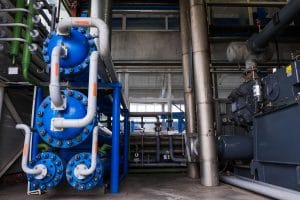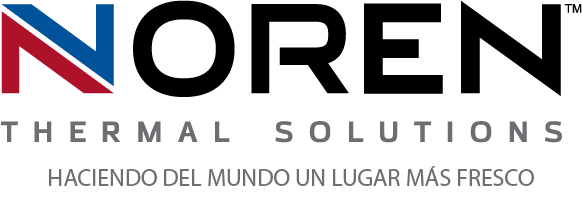 For companies in most industries, the goal to achieve optimal eco-friendliness is as important as the goal to maximize efficiency and productivity. However, some processes that have traditionally impacted the environment have sometimes seemed too complex to streamline. Electrical thermal management used to be such a process, with companies routinely having to rely on solutions like air conditioning and air compression to prevent electrical overheating. Today, however, companies now have several different conventional and custom-designed heat exchanger units to choose from. Each of which significantly improves the thermal management process, making it easier for companies to stick to their goals of eco-friendliness.
For companies in most industries, the goal to achieve optimal eco-friendliness is as important as the goal to maximize efficiency and productivity. However, some processes that have traditionally impacted the environment have sometimes seemed too complex to streamline. Electrical thermal management used to be such a process, with companies routinely having to rely on solutions like air conditioning and air compression to prevent electrical overheating. Today, however, companies now have several different conventional and custom-designed heat exchanger units to choose from. Each of which significantly improves the thermal management process, making it easier for companies to stick to their goals of eco-friendliness.
They don’t need so much energy
Heat exchangers and similar custom thermal solutions prevent electrical overheating by transferring electrical waste heat as soon as it’s generated. While chilling the air inside of an electrical enclosure can require energy-intensive processes, transferring heat to stop it from accumulating is much more efficient. For instance, the equipment needed to accomplish it doesn’t require as much energy to operate, which helps companies address one of their biggest environmental factors – energy consumption. Despite using only a fraction of the energy, heat exchangers can accomplish high-performance heat transfer continuously, without costing companies any loss in productivity.
They can operate with minimal maintenance
Saving energy is important to a company’s eco-friendly efforts, but if its technological solutions require employees to constantly repair and maintain them, then the loss in productivity may not be worth it. This can often be the case with traditional HVAC and air compressing solutions, which are built with extensive moving parts that can often wear down, malfunction, or break. By contrast, heat exchangers utilize simplified equipment, such as heat pipes or cold plates, with minimal moving parts (such as just one or several fans to induce faster convection). This dramatically reduces the amount of downtime companies experience due to the need for system repairs or part replacements.
They make eco-friendly processes more efficient
While heat exchangers themselves have been a boon to companies’ productivity and green energy efforts, the innovative heat transfer concepts that they implement have also inspired a number of other eco-friendly efforts. For example, many companies use heat exchanger technology to make processes like wastewater treatment faster, more reliable, and more co-friendly. Heat transfer capabilities have also become important parts of alternative energy solutions, such as solar and wind power, allowing innovators to implement appropriate solutions for transferring collected energy.
For more information about why heat exchangers make eco-friendliness easier, call Noren Thermal Solutions in Taylor, TX, at 866-936-6736.







